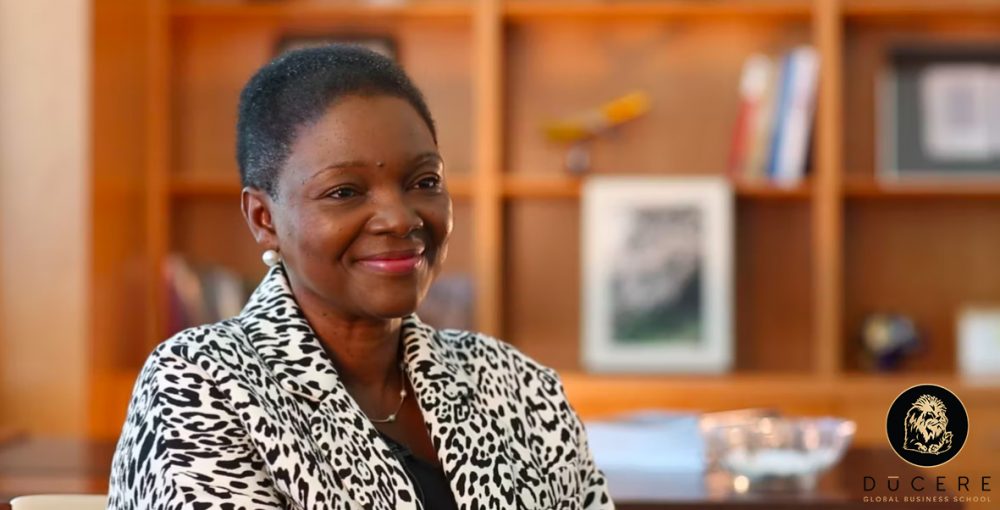The first Black woman to serve as a United Kingdom cabinet minister and the first to be appointed Leader of the House of Lords, Baroness Valerie Amos has spent her life campaigning for equal opportunities across the world – including a stint as the United Nations Undersecretary-General for Humanitarian Affairs and Emergency Relief Coordinator.
She also has served as Britain’s High Commissioner to Australia, led the United Nations Development Program – a task force combating poverty and promoting economic growth – was on the World Health Organization’s advisory group for humanitarian causes, and is a Ducere Global Leader Faculty Member.
“Really good leaders recognize what they’re good at and know they have to work with others to help complement their skills.”
Her skills as an orator and an uncanny ability to bring disparate groups of people together have seen her become a business guru, always stressing the need for humility, communication and inclusive management.
“We often think that the quality of a good leader is that you don’t need advice or support,” she says. “I think it’s the complete opposite. Really good leaders recognize what they’re good at and know they have to work with others to help complement their skills.”
Conviction in leadership
Channeling passion and strong conviction to compel stakeholders to collaborate is critical.
“There’s one cardinal rule of coordination, which is everybody thinks it’s a good idea, but nobody wants to be coordinated. So, you have to persuade everyone that it’s not only a good idea, but that it delivers real benefits,” she says.
“We have humanitarian coordinators in countries with major crises, and I’ll always say to them that the leadership element of coordination is really difficult because you don’t have power and authority over people so you have to exercise leadership through influencing, and it’s probably the hardest thing to do.”
“The leadership element of coordination is really difficult because you don’t have power and authority over people so you have to exercise leadership through influencing.”
It’s a task made harder still if you haven’t built supportive networks.
“Relationships are absolutely vital as it’s all about demonstrating the value of what you do to partners and those able to support you with money,” she says. “And they shouldn’t be one way. If I need someone to do something for me, I’ll ask them directly and very often they’ll say yes without expecting something back.”
It’s a principle that applies equally in business or in humanitarian aid. Amos has overseen international emergency responses to natural disasters in Haiti, Pakistan, Japan and Syria, and been inspired by the resilience she’s seen among displaced and poverty-stricken people.
“They’re in the most dire circumstances and they refuse to give up,” she says. “They look to us to get them back on their feet, but they don’t want to be dependent. People keep me positive, but sometimes politics makes me very frustrated!”
The CEO Magazine is proud to have partnered with Ducere Global Business School to bring our readers career-driven MBA programs. Click here to find out more.







